#dilma icons
Text
Bolsonaro, get your hands off our colors!
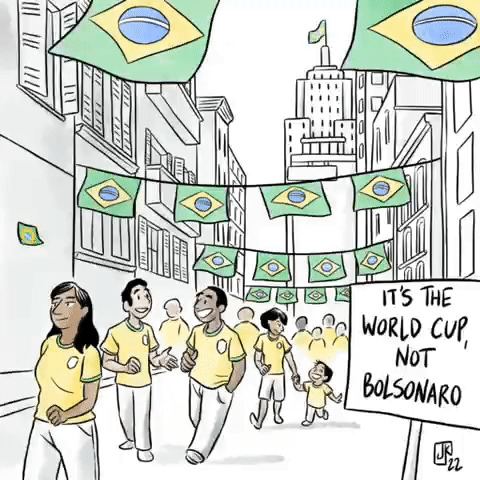
For years, Brazil’s iconic flag and yellow national football shirt have become symbols that no longer solely represent the country itself.
A wave of street protests in 2013, which began as demonstrations against public transport hikes, soon turned into expressions of general “dissatisfaction” — and the people used the Brazilian flag, national team jersey, and the anthem as their protest symbols.
This protest wave very quickly turned to the right, demanding the impeachment of then President Dilma Rousseff and the eradication of the center-left Workers’ Party.
In this milieu, far-right congressional backbencher Jair Bolsonaro emerged as the symbol of this nationwide movement, coining his soon-to-be iconic slogan: “Brazil above everything, God above everyone.”
At this juncture, the wearing of the Brazilian national team jersey or the use of the flag became a political and decidedly reactionary statement. Elected president, Mr. Bolsonaro promised that “Brazil’s flag would never be red” and continued the green-and-yellow branding throughout his government.
Now, with Mr. Bolsonaro defeated, Lula elected, and the 2022 World Cup just weeks away, there is a desire among the Brazilian population to dig out their yellow shirts and flags and rally behind their football team — without being seen as making a political statement.
Continue reading.
#brazil#politics#brazilian politics#soccer#sports#world cup#world cup 2022#mod nise da silveira#image description in alt
118 notes
·
View notes
Text
Tributes Pour In For Jô Soares As Brazilian Comedian Dies Aged 84
Tributes Pour In For Jô Soares As Brazilian Comedian Dies Aged 84
Jô Soares, a well known musician and comic, handed away on August 5 on the age of 84. His ex-wife, Flavia Pedra, broke the information by writing on social media:
Jô Soares, a tv icon from Brazil, handed away at age 84. Within the years main as much as the 2016 coup, he handled Dilma Rousseff with respect on his late-night chat present. In consequence, he was the sufferer of a smear marketing…

View On WordPress
0 notes
Text







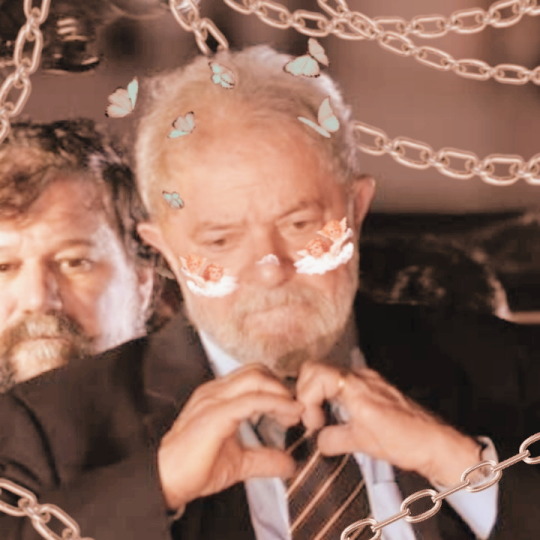


## lula senpai messy icons !!
• like or reblog if you save/use ✰
⠀⠀꒰⑅ᵕ༚ᵕ꒱˖♡ please, don't repost. ⸝⸝ ✰
#pt#vsco icons#vsco receita#messy icons#soft icons#messy moodboard#soft icon#messy icon#vsco receitas#soft moodboard#vsco soft icons#vsco soft recipe#vsco soft edits#vsco moodboard#lula icon#lula icons#eu n sei por tag nisso vei#jkghtin humor e piadas#pt icons#dilma icons#dilma icon#vsco effect#vsco soft filter
104 notes
·
View notes
Text
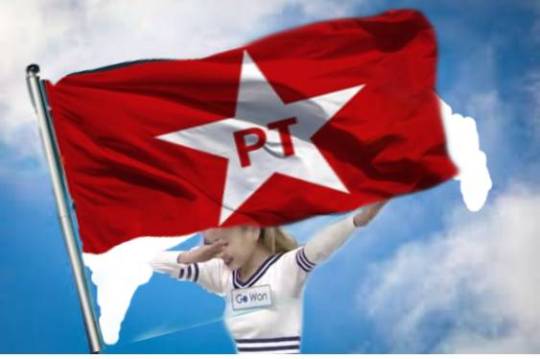

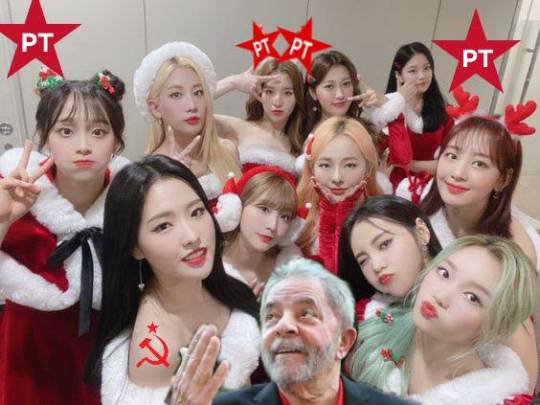
loona petista ❤️
#pt#lula livre#lula 2022#loona#comunismo#loona icons#loona meme#loona header#bts#exo#blackpink#kpop#petista#eu sou cadelinha do lula#dilma#fernando haddad
192 notes
·
View notes
Text
eu, observando a população de brasileiros crescer na minha dash:

8 notes
·
View notes
Photo





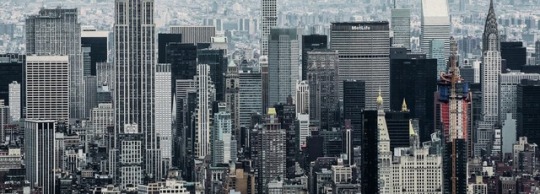

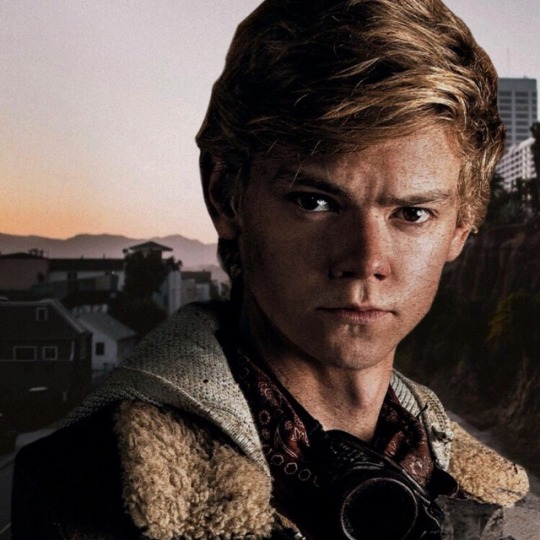

#the maze runner#maze runner#tmr#the scorch trials#tst#the death cure#tdc#dilan o'brien#thomas sangster#newt#thomas#newmas#newtmas#dilmas#twitter packs#twitter headers#twitter layout#twitter icons#twitter pack#tumblr packs#tumblr pack#tumblr headers#tumblr icons#tumblr layout#icons#headers#layout
42 notes
·
View notes
Note
Nice festive URL, maybe :) they’ll :) bring :) it :) back :). btw idk if it’s just my phone but your icon isn’t showing up on mobile
thats what the personal adventure was... reconnecting with their son dil and his family ..... finding that special christmas magic.. maybe the real dilmas was the gaming channel videos we made along the way
#also my icon also isnt showing up for me but i thought it was just my phone buggin. bc recently this app has been so horrible <3#like the problems are always w THIS blog my other ones are fine but i try to look at my own blog here and tumblr is like. no.#lemme see if i can fix it#answered#deadandphilgames
7 notes
·
View notes
Note
-mukbang -giving the people what they want -dab becomes an actor (i love it mainly because phil is actually leaning on dan toward the end and the look he gives when they realize evan stayed up for dab)
The mukbang and giving the people what they want are my favorite videos too!
I particularly liked the mukbang because I liked how raw it was. Like we saw sides of Dan and Phil that didn’t normally see. Like Phil being anxious to open the door because the delivery guy “looked like Zac Efron” or also him talking so openly about being anxious about events like two weeks before it happens because that’s literally me too. And I think also seeing the different side of Dan who doesn’t like to eat on camera and who also asked questions about having a personality. And I think the video is easily one of the rawest videos we’ve ever gotten and I’ve so happy at how far they’ve come.

As for gtpwtw, I loved that video as well! Unlike a lot of people on Tumblr, I actually really wanted Dan and Phil to do the yoga challenge so that was honestly the highlight of the entire video for me lol

But I also liked how it opened up this new chapter of trust and openness enough that they want to do what we also want them to do (within reason) and I’m super excited! Plus, we all know they should adopt a dog 🤷🏼♀️

And also I loved the entire Dilmas this year because we got so many iconic moments like the one you mentioned! Literally Dan and Phil are Dab and Evan and no one can change my mind lol
Also sorry for deleting your ask. I promise I can tumblr lol
Send me your favorite Dan and Phil videos and I promise I won’t delete anymore asks lol
7 notes
·
View notes
Photo



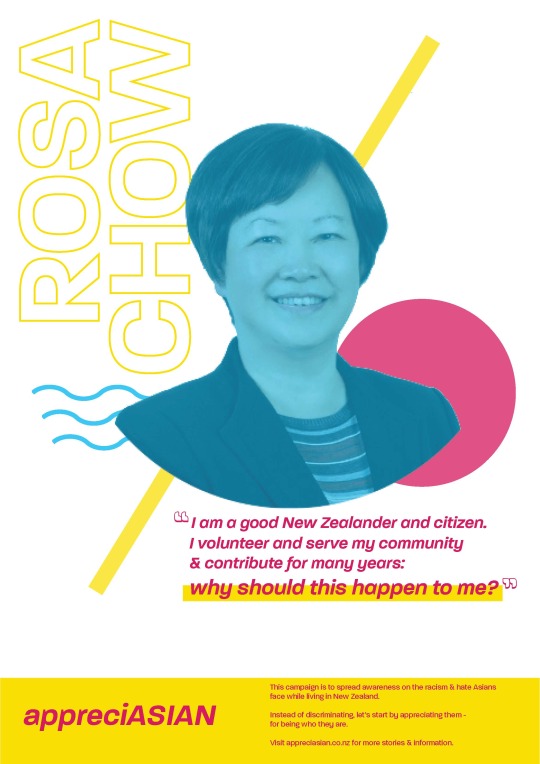
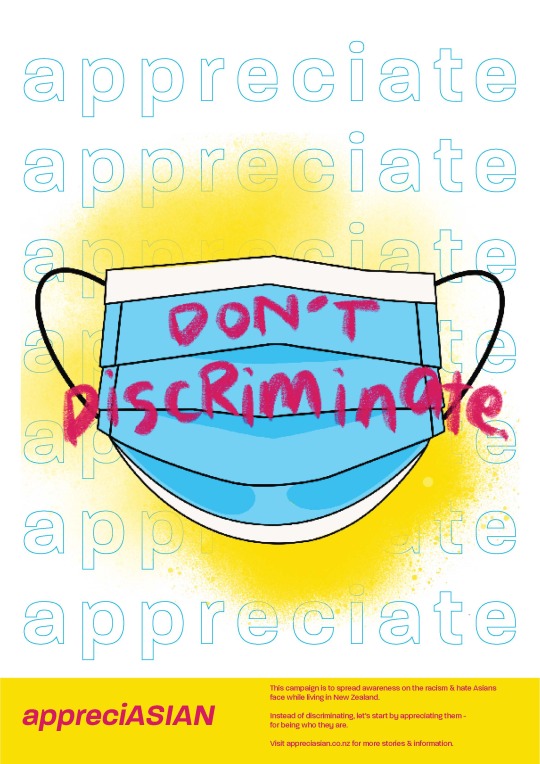
week three - thursday SDL
design 3x A3 posters using the same design system
from left to right = typography based, photography based, illustration based
I made 3 different poster WIPs series for my campaign. so far, I’m digging the colour scheme and like how bold the colours are. I might stick to this colour scheme.
I would like to improved the typography based poster on the left as there's too much words + repetition going on. I really liked the layout for the photography based but it does need some improvements to make it better. I think the illustration based is nice but the message is quite cliche and generic. I would like to change that in the future
sites used for design inspiration:
Adeevee. (2016). El Cronista: Trump, Hillary, Dilma. Retrieved from http://www.adeevee.com/2016/06/el-cronista-trump-hillary-dilma-print/
Feed Type. (2017). Centre du Théâtre d’Aujourd’hui 2017–18 Season. Retrieved from https://feedtype.ca/en/centre-du-theatre-daujourdhui-2017-18-season/
McCready, R. (2020). 55+ Creative Poster Ideas, Templates & Design Tips. Venngage. Retrieved from https://venngage.com/blog/creative-poster-ideas/
Lynchy. (2015). BLAK LABS SINGAPORE MATCHES COMPLETE STRANGERS IN A LIFE-SAVING RECRUITMENT CAMPAIGN FOR BMDP. Campaign Brief Asia. Retrieved from https://campaignbriefasia.com/2015/09/21/blak-labs-singapore-matches-co/
Doyle, C. (n.d.) Home - Christopher Doyle & Co. Pinterest. Retrieved from https://www.pinterest.nz/pin/663929170072639834/
UI8. (n.d.) UI Design Resources, UI Kits, Wireframes, Icons and More. Retrieved from https://www.pinterest.nz/pin/370139663132084955/
quick poster WIPs through adobe indesign + photoshop + procreate
29.07.2021
0 notes
Text
FT interview: Brazil’s Lula on the prospects of an extraordinary comeback
The former president, who spent more than a year in jail on corruption charges, is now favourite to win the October election.

If he wins the presidential election in October, it will go down as the political comeback of the decade — if not the century. Luiz Inácio Lula da Silva, a former shoeshine boy and metalworker, benefited from an economic boom as Brazil’s president and left office in 2010 with an approval rating above 80 per cent.
“I was aware that if I reached the presidency of Brazil and my government didn’t work out, a worker would never again be able to think about becoming president,” he says in an interview with the Financial Times at his campaign’s media hub, a hip office space in a fashionable neighbourhood of São Paulo.
Under his anointed successor, Dilma Rousseff, however, the economy plunged into a brutal two-year recession — partly as a result of policies introduced in his second term. It has struggled to generate strong, sustained growth ever since.
The leftwing Workers’ party (PT) he has dominated for four decades was revealed to have been at the centre of a massive graft scheme while Lula and Rousseff were in office. The US Department of Justice described it as the “largest foreign bribery case in history”.
As the country became enraged at the extent of the corruption under PT rule, Lula was jailed in 2018 on graft charges — spending 580 days in a federal prison. While he was in jail, Jair Bolsonaro, an anti-establishment far-right former army captain, won the presidency.
Yet after being released in 2019 on a procedural issue, Lula is now on the verge of a stunning second chance. According to the opinion polls, the 76-year-old, who remains an icon of the Latin American left, is a strong favourite to win back the presidency in October from Bolsonaro.
Continue reading.
#brazil#brazilian politics#politics#luiz inacio lula da silva#brazilian elections#brazilian elections 2022#mod nise da silveira#image description in alt
4 notes
·
View notes
Link
Why thousands of Brazilian politicians changed their race last year Interviews with several Brazilian candidates revealed a range of reasons for race changes — some said they or campaign officials had simply made a mistake while filling their candidacy form, some said their family background gave them a claim to multiple racial groups, and some said they had recently started to feel a sense of belonging in a new racial category. Brazilian politicians do “have some latitude to fluctuate on how they present themselves” in order to connect with supporters, Andrew Janusz, a political scientist at the University of Florida who has studied the race changes of candidates extensively, told CNN. Nevertheless, “individuals don’t have total freedom of choice, so if someone is really fair-skinned, they might not be able to say that they are Black, for example,” he said. Official demographic categories in Brazil have traditionally focused on what demographers call marca — each individual’s external appearance — rather than family origins, unlike the US. The most common racial change for politicians last year was from White to Black or Brown, a shift made by more than 17,300 candidates. But vast numbers of candidates also moved in the opposite direction: About 14,500 switched from Black or Brown to White — the second-most common change. Adriana Collares, who ran for city council in Porto Alegre, told CNN that her racial declaration changed only because her previous party had mistakenly described her as White in 2016, against her wishes. “I never considered myself White, but there was no name for what I was,” she says. “I never felt like I had the right to call myself Black. I was always recognized as ‘tanned,’ as ‘mulatta,’ as anything but Black. Then came this term, ‘Pardo,’ and I found my place in the world.” “Pardo” translates literally to “Brown,” but can also mean mixed-race. Though not commonly used colloquially among Brazilians, it has been used by national statistics agency IBGE, including in the census, as an official category since the 1950s, and is currently the largest group in Brazil. Since the 2016 election, Collares left her old party and moved to a new one. In the 2020 election, she again requested to be described as Brown. This time, the party respected her choice. In contrast, Adriana Guimarães, who ran for city council in Manaus, switched her racial declaration in the opposite direction. She told CNN that she selected Brown in 2016 after being ideologically conditioned by the left. “In Brazil, we have a mixture of races. In my case, I also have that mixture, of Black, White, and Indigenous. But under Lula and Dilma, there was a push for Brazilians to identify as Brown,” she said, referring to campaigns sponsored by the administrations of former presidents Luiz Inácio Lula da Silva and Dilma Rousseff that described Brazil as a mixed-race nation. After an economic crisis and a corruption scandal hit the country in the early 2010s, Guimarães, like many other Brazilians, began to embrace a more conservative view of the world. She was also reacting to what she perceived as government overreach in the private sphere. “I started participating in conservative movements,” she says. “I started researching conservatism, reading about Ronald Reagan in the United States and Margaret Thatcher in the United Kingdom, and I ended up noticing that I’m conservative.” She also noticed her racial identity in a new way. “My race change happened due to my new political ideology,” says Guimarães, now a supporter of President Jair Bolsonaro. In 2020, she declared herself White. “I could say that I’m Parda because my grandmother was Black. But my color is White. My color is not Parda. I’m not a ‘neutral burned Yellow.’ I believe that saying that I’m Parda is like saying that I’m neutral. But I have my position, I have my strength, I’m not neutral. It’s the same thing with that neutral gender. It’s like being undecided,” she said. Picking an identity Brazil’s official racial categories have evolved over time, and some contemporary efforts to change them are part of a broader push to rectify inequalities rooted in the country’s history. Slavery lasted longer in Brazil than in other places in the West, and involved more people than in other countries in the Americas — of the 10.7 million slaves who arrived alive on the continent, about 5.8 million were brought to Brazil, compared to about 305,000 taken to the United States, according to the Slave Voyages database. “Violence has characterized Brazilian history since the earliest days of colonization, marked as they were by the institution of slavery,” write Heloisa Starling and Lilia Schwarcz in their history “Brazil: A Biography” Even after slavery ended, “its legacy casts a long shadow.” To this day, the country continues to suffer from steep social and racial inequality. While the nation shows “cultural inclusion” — exemplified in diverse participation in popular traditions like samba, football, and capoeira — they warn that “social exclusion” still means that “the poor, and above all Black people, are the most harshly treated by the justice system, have the shortest life span, the least access to higher education, and to highly qualified jobs.” That exclusion can be seen in politics too. According to the national statistics agency, Black and Brown people are the majority in Brazil, but in 2018 made up only about 40% of candidates for Congress. The disparity increased even more after the election — only about 25% of successful candidates were Black or Brown, according to the Institute of Socioeconomic Studies, an independent research institute. Brazilian legislators elected in 2018 were overwhelmingly White. In the early 2000s, then-president da Silva created a government agency to promote racial equality, and in the early 2010s, his successor Rousseff approved ambitious affirmative action programs to address lingering racial inequality, including the 2012 law that reserves spots for poor, Black and Brown, and Indigenous students in federal universities and federal technical high schools, and the 2014 law that reserves 20% of public service jobs for Black and Brown applicants. These initiatives became rarer under the right-wing administration of later president Michel Temer and the current far-right administration of Bolsonaro. So progressive politicians have sought to advance social equality by pushing judges to interpret existing legislation, including the constitution, which repudiates racism. Putting money behind representation in politics In 2018, a group of female senators and deputies asked Brazil’s Superior Electoral Court to rule on whether male and female candidates should receive funding and advertising proportionally. Judge Rosa Weber, who ruled in their favor, wrote in her decision that the Superior Electoral Court “had been trying to encourage female participation in politics,” but existing measures had not done enough. When it comes to funding and advertising, she wrote, proportionality mattered — meaning that if a party has 30% of female candidates, those women should get 30% of the party’s total allocated funds and 30% of its airtime. The new rule was approved in time for the 2018 federal election. Two years later, the same court received a similar inquiry from Benedita da Silva, a deputy in Congress and an iconic Black politician in Brazil, who asked the court if there should be a minimum quota for Black and Brown candidates within parties, and the same proportional mechanism for their funding and airtime. The court denied the quota, but approved the proportionality. These rules could make a significant difference in driving funds to some candidates from underrepresented groups and even increase their chances of being elected, says Luciana Ramos, a professor of law at Fundação Getúlio Vargas who has tracked the application and impact of the two new parity rules. Tracking how political parties manage their electoral decisions is relevant in Brazil because most party activities and electoral campaigns are publicly funded. In 2020, Brazilian political parties received a total of R$3 billion ($540 million) from national coffers. Politicians also get free airtime on television and radio. Last year, that was at least 1h30 per day distributed among parties for about 30 days before the election, according to figures published by the Electoral Justice. In part because of the new racial equality rule, in part because of Black Lives Matter protests in Brazil and around the world, and in part because of growing awareness of racial inequality issues, more attention has been paid to the declarations of candidates in 2020 than in previous cycles. Some politicians are clearly sensitive to the scrutiny. Kelps Lima, who ran for mayor of Natal and declared himself as White in 2016 and Black in 2020, answered a broad question about his race change with a vigorous denial that it had anything to do with funding. “I declare to be Black since always and I NEVER USED QUOTAS in any moment of my life,” he wrote to CNN. “In 2016, the party made a MISTAKE and declared me as WHITE.” Lima added that he didn’t use campaign funds reserved for Black and Brown candidates and said that he had declared to be Black in two previous elections. A small portion of politicians who changed race in 2020 had made consistent declarations until that year: CNN’s analysis identified about 360 candidates who declared themselves White for two or three elections, between 2014 and 2018, then changed their race to Black or Brown as the new racial equality rule came into force in 2020. “I owed this to my origins,” said Marcio Souza, a candidate for city council in Porto Alegre who identified as White in two previous elections before changing to Black. “I’m absolutely a result of miscegenation,” he wrote in an email to CNN. “My mother was White, green eyes, Portuguese and Spanish, and my father was dark brown, dark brown eyes, Portuguese and Black.” He says he made the change as a conscious statement of solidarity. “For a long time, I have been thinking about this subject,” he wrote. “Due to the occurrences of racial crimes, I decided to adopt, in a positive manner, one of the elements of my racial composition, following my consciousness.” “From that decision, I didn’t receive financial benefits,” he added. “I’m at peace and I believe to be contributing to the fight against racism.” Another candidate, Vanderlan Cardoso, who ran for mayor of Goiânia, declared himself White for three consecutive elections, before selecting Brown in 2020. He gave a partial explanation for the race change during his electoral campaign last year, telling Goiás newspaper Popular that different people filled his candidacy forms. “In 2018, whoever filled it considered that I’m White,” he said. “Whoever did it now, instead, thinks that I’m Brown.” He also said during the campaign that he didn’t plan to use funds reserved for Black and Brown candidates. Cardoso did not answer requests for comment from CNN that mentioned his 2014 and 2016 racial declarations. He lost the election and returned to his job in Brasília as a senator representing the state of Goiás. But the electoral data shows that tens of other candidates who made the same move from White to Black or Brown ended up winning their races, including mayors of state capitals. Verifying racial claims Could Brazil’s racial fluidity end up weakening affirmative action rules designed to bolster under-represented groups, when those rules depend on stable racial categories to work? “Most everyone will say that racial inequality is a major issue in Brazil, and that things need to be done to ameliorate equality,” says Janusz, the political scientist who studies the race changes. “But to do that, you have to identify some boundaries, some procedures to identify beneficiaries.” In other affirmative action systems in Brazil, commissions exist to check if people are telling the truth. When Collares, the city council candidate from Porto Alegre, made use of the affirmative action programs approved under Lula and Dilma and took advantage of a racial quota to get her current job as a civil servant, she had to go through an interview with a commission that checked if she was really Brown. “I believe they wanted to know if I had experienced life as a non-White person,” she says. “I had to do an interview. I had to bring family photographs, childhood photographs. They asked about my family life, the culture inside our house, family habits. I spoke a bit about my life. I thought it was kind of surreal, but fine.” But political parties are not required to verify candidates’ racial declarations, and multiple parties that spoke to CNN said they were unaware that their politicians had changed race. Both PT, the left-wing party of former presidents Lula and Dilma, and PSDB, the right-wing party of former president Fernando Henrique Cardoso, said that they had not recorded race changes among their candidates, even though the electoral data reveals thousands of changes in each party. Some parties benefitted candidates who had recently switched races. A list of Black and Brown candidates who received more funds due to the new rule sent to CNN by PSDB included one politician who had run for office as White in 2018 and as Brown in 2020. The party did not answer a question about that specific candidate. Gabriela Cruz, the leader of the Black wing of the PSDB party, told CNN she believed there might have been fraud in the 2020 election. “I observed cases in which the self-declared person was White,” she said, but added that making any further claims was complicated. “I don’t have enough evidence to say if it was only to access funds or if it was a question of racial awareness.” Cruz thinks parties should be required to check candidates’ physical traits against their racial declarations, “with the support of the Black wing of the party.” Though she respects people’s self-identification, she argues that physical traits matter. “Racism in Brazil is practiced through social constructions that exclude people by function of their physical characteristics, like skin color, facial features, and hair texture,” she says. “That is what places people in their racial group, and not their genetic composition.” Ramos, the law professor studying the funding rules, says that there could have been instances of deceit in 2020, but noted that fraud could also take other forms. “A party leader could direct campaign resources to a Black candidate and order her to transfer those resources to a White candidate, for instance,” she said. The Superior Electoral Court told CNN that it has not received any reports of fraud from the 2020 vote so far, in part because parties are still making their campaign budgets public. It said that potential punishments would include forcing a candidate to return the funds used in the campaign and, in more serious cases, removing them from office. Brazil is changing Representation matters more and more as Brazil itself changes. Population data from the national statistics agency shows that the share of Brazilians declaring to be Black and Brown increased during the 2010s, and that now represent about 56% of the entire population. Meanwhile, the share of Brazilians declaring to be White fell — they now make up 43%. Only recently have Brazilians had the option to declare their own racial identity — historically, census interviewers assigned their subjects a racial category. But Brazil’s political arena is failing to reflect the country’s diversity, despite the new equality rules approved in 2018 and 2020. Ramos, the law professor, points to a preliminary tally by 72 Horas, a watchdog group, that shows that, based on the budgets that have been made public so far, parties failed to distribute support proportionally, either by race or gender. Parties gave only 42% of their available campaign funds to Black and Brown candidates in 2020, according to 72 Horas, even though they were 50% of all candidates, according to the statistics released by the Electoral Justice. And parties gave only 30% of their funds to female candidates, even though they were 33% of all candidates. Since both women and Black and Brown people are the majority in Brazil, the figures above suggest that they were underrepresented within parties in relation to their true size in the population, and that their campaigns were underfunded in relation to their size within parties. Closing the gap between genders and races is important if Brazil wants to create better policies for specific groups, says Collares, the city council candidate from Porto Alegre. She believes that when a politician belongs to a certain group, their work is informed by the life experience of being a member of that group. “If you don’t experience it in your life, if you don’t feel it on your skin, it’s difficult to understand, it’s difficult to prioritize,” she says. “A man thinking policies for women is different from a woman thinking policies for women.” “We need to try to reach this parity, this representation,” she adds. “The majority of our people are Black and Brown, and we don’t see that.” Source link Orbem News #Brazilian #changed #Politicians #Race #thousands #Year
0 notes
Text
Top 10 Most Powerful Politicians In The World 2020theforbeshub
New Post has been published on https://theforbeshub.com/most-powerful-politicians-in-the-world/
Top 10 Most Powerful Politicians In The World 2020

A politician is a representative of a country that is selected by the people to help them out of their crisis.
These persons are expected to be highly intelligent, capable and trustworthy due to the tasks they have been assigned to do.
Since there are so many countries in the world and so many politicians who are meant to perform specific duties of the state, few of them are competent enough to be regarded.
The power of a politician is not the number of persons he or she can kill, but the relative competitiveness that sets the politician apart from the opponents and rivals.
State affairs are incredibly delicate and require extravagant quick retort when it comes to any emergency.
Politicians who lack agility and sincerity fail their state and are often disregarded as traitors.
The world has seen many politicians, from conservatives to liberals, dictators to democratic.
Aggressive to charismatic and they play a very vital role in the development of a country in all aspects be it economic, socio-economic, technological, capacity building and environmental.
10: Dilma Rousseff
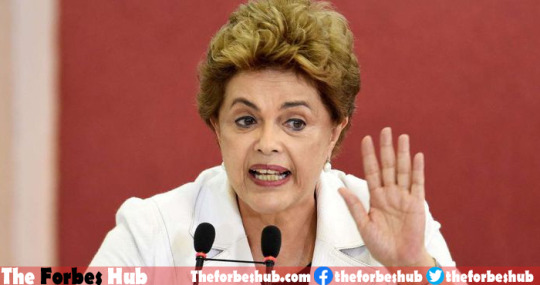
Dilma Rousseff was born on December 14th, 1947.
She is a Brazilian politician and Brazil’s first-ever female President. Now she became Brazil’s 36th President and held the position from 2011, then reelected in 2014 till 2016.
Due to the recent feminist movements and changes in the patriarchal society, Dilma is being regarded among the top politicians.
Her aggressiveness and lack of sympathy towards the corrupt has made her famous. She is the first woman to hold the presidential seat in Brazil.
9: Hillary Clinton

Hillary Diane Rodham Clinton was born on October 26th, 1947.
Hillary is an American born Politician and Diplomat who also served as the First Lady of the United States from 1993 to 2001.
U.S Senator from New York in 2001 to 2009, 67th United Stated Secretary of State from 2009 to 2013 and the nominee from the Democratic Party for President of the United States in the 2016 election.
Although she was not elected as a president, she still has a soft corner in her heart for politics.
8: Angela Merkel
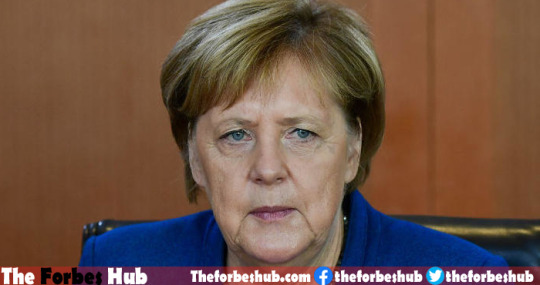
Angela Dorothea Merkel was born on 17th July 1954.
She is a German politician who has been serving as the Chancellor of Germany since 2005 and since 2000 she has been the leader of the center-right Christian Democratic Union (CDU).
Angela Merkel is also famously known as the de facto leader of the European Union.
Angela is known for her quick remarks and highly intelligent responses and is claimed to be the most inspiring female politician in the United States.
7: Narendra Modi

India is a state which is on the brink of war and at an edge of economic collapse.
The country is known as the rape capital of the world and there is no security value for the citizens.
Therefore, it is a requisite of the state to employ comparatively better and slightly competent politicians.
Even though, every person in India is standing on the verge of corruption and self fortune making. Modi is a better fish in the sea and is known for making better policies.
6: David Cameron
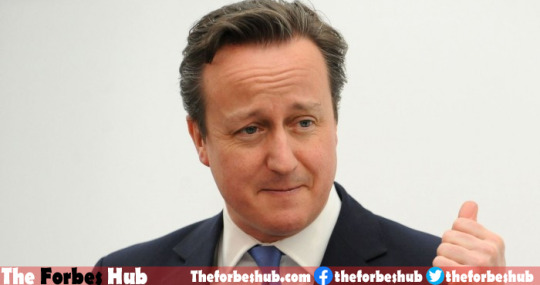
David William Donald Cameron was born on October 9th, 1966. He is a British politician was born in an upper-middle-class family.
Cameron served as the Prime Minister of the United Kingdom from 2010 to 2016. His list of achievements is endless.
He was the Member of Parliament from 2001 to 2016. In October 2016, Cameron resigned in October 2016 after the result of the referendum which came to be known as Brexit came out to be 52% to 48% in favor of leaving the European Union.
5: Manuel Valls

Manuel Carlos Valls Galfetti was born on 13th August 1962.
He has a Spanish origin but is a French Politician who served as the Prime Minister of France from 2014-2016.
He belonged to the Socialist Party and was also nominated in the 2017 Presidential election but lost to the opposition in the second round.
However, he is known for his exceptional but different skills.
Manuel has studied music and is a composer, guitarist, and an outstanding singer. His qualities derive him the name of a good politician.
4: Donald Trump
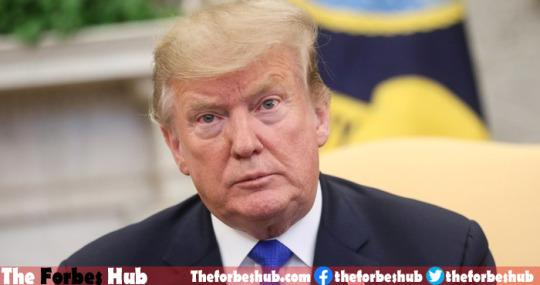
Donald John Trump was born on 14th June 1946. Trump is the 45th current President of the United States of America.
He is known for carrying the major operations in Syria and Afghanistan. However, he is powerful as he has killed more children in these countries than the number of children in his own country.
Donald is also known for using the word millions in his speeches and that rests assured as he has killed millions of people. These qualities certainly, make him among the powerful.
3: Vladimir Putin
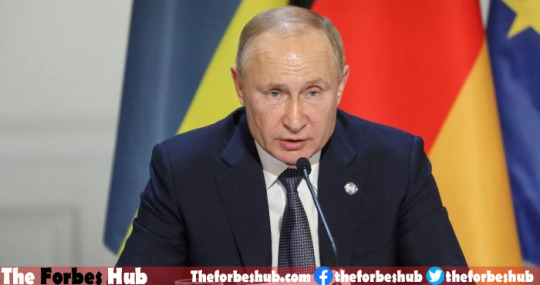
Vladimir Vladimirovich Putin was born on 7th October 1952. Putin does not need an introduction, everybody is aware of his Russian descent.
He is the former intelligence officer serving the President of Russia and he was the Prime Minister of Russia from 1999 till 2000 and again between 2008 until 2012.
Putin has played a very vital role in the development of Russia and has amassed support like no other from the people of his country.
Putin is renowned around the world for his communist manifesto and leadership qualities.
2: Xi Jinping
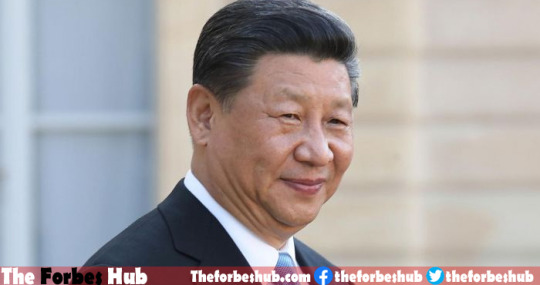
Xi Jinping was born on 15th June 1953. Jinping is a Chinese Nationalist and a Chinese Politician serving as General Secretary of the Communist Party of China (CPC) and the President of China.
His sterling operations and intelligence facilities have made him among the top politicians of the world and he is fit for the title.
He became famous through the anti-corruption scheme he ran in his country that turned out to be extremely successful.
China is now standing at the pinnacle of economic stability, military support and a gentle instance for every country in the globe.
1: Imran Khan

Nothing comes to mind when we discuss power, except for Imran Khan and his exceedingly sterling qualities.
Imran Khan Niazi is a former cricketer and a legend who rose to fame after his glorious World Cup win.
Imran Khan became the prime minister of Pakistan in the summers of 2018 and is still performing his duties with supreme diligence and expertness.
The former cricket captain, style icon and the highest official of the country Pakistan is known for qualities that are not possessed by anyone.
0 notes
Text
How a scandal that started in Brazil is now roiling other Latin American countries
By Marina Lopes and Nick Miroff, Washington Post, February 22, 2017
BRASILIA--Some of the world’s most iconic companies cast themselves as emblems of their nation’s values--all-American Coca-Cola, for instance, or quintessentially Japanese Toyota. And for a while, that was also true of the Brazilian construction behemoth Odebrecht. In a good way.
Odebrecht was on a cloud during the first decade of the millennium, when Brazil won hosting rights to the 2014 World Cup and the 2016 Olympic Games, affirming its status as a rising star. With the charismatic President Luiz Inácio Lula da Silva touting Odebrecht abroad, the company secured lucrative foreign contracts to build highways, transportation systems, stadiums and power plants.
But Odebrecht’s other export was Brazilian-scale corruption, undermining countries it was supposed to be building up. The company is today at the core of Brazil’s biggest-ever graft scandal, a $2 billion kickback scheme in which nearly 100 executives and politicians have been imprisoned.
The fallout is spreading across the region, creating a test for other countries tainted by Odebrecht’s dirty money. Prosecutors in Brazil, the United States and elsewhere have unearthed evidence that could implicate current and former presidents across the Americas in criminal conduct.
The case, known as “Car Wash,” has been a breakthrough for judicial independence in Brazil, garnering broad public support. Whether it will lead to cleanups or coverups elsewhere has become a barometer of good governance across Latin America. So far, there have been few arrests outside Brazil, but prosecutors in several countries in the region are pressing for more information from Brazilian investigators and former company executives.
“The scale of what Odebrecht did was unique, but it’s not like the Lula government or Odebrecht invented corruption in Latin America,” said Brazil expert Brian Winter, editor of the Americas Quarterly journal. “What was unique about Odebrecht was that they got caught.”
In December, Odebrecht agreed to pay $3.5 billion in global penalties, the largest foreign bribery settlement in the history of the U.S. Department of Justice, which, together with Swiss and Brazilian prosecutors, uncovered an $800 million web of graft spanning at least 12 countries in Latin America and Africa.
The company had a secret branch, the “Structured Operations Division,” which managed payments through accounts in the British Virgin Islands and hidden servers in Switzerland, functioning “as a stand-alone bribe department,” prosecutors said.
Marcelo Odebrecht, the company’s former chief executive, has been sentenced to 19 years in prison, and so far, nearly 80 Odebrecht executives have accepted plea deals in exchange for more-lenient sentencing.
Odebrecht remains in business, but it has shed nearly a third of its 180,000 employees since the scandal erupted, and its revenue has plunged 50 percent. It has signed plea agreements in the United States, Switzerland and the Dominican Republic and is negotiating deals with Peru, Colombia and Panama.
Although it may seem counterintuitive, Winter said, the countries most shaken by the scandal so far are the ones whose judiciaries are strong enough to act. In Peru, former president Alejandro Toledo is accused of taking more than $20 million in bribes from the company, and Peru’s government think he’s on the lam in United States.
Just as fury in Brazil over the Car Wash scandal contributed to last year’s impeachment of Lula’s successor, Dilma Rousseff, Latin Americans elsewhere also appear fed up. Anti-corruption protesters marched in the streets last month in the Dominican Republic, where Odebrecht allegedly paid $92 million in bribes but where no charges have been filed.
Colombia’s top prosecutor made an explosive allegation this month: that Odebrecht channeled $1 million in illegal donations into President Juan Manuel Santos’s 2012 reelection campaign. But the jailed ex-senator who allegedly made the claim denied it a week later.
In Panama, 17 business executives and former officials have been charged, and one former Odebrecht executive has said he paid bribes to the sons of former president Ricardo Martinelli. The sons deny it. Prosecutors investigating the Odebrecht case have also raided the offices of Mossack Fonseca, the law firm at the heart of the “Panama Papers” leak.
Then there are countries such as Venezuela, where Odebrecht has left bridges to nowhere rusting in the jungle. The late Hugo Chávez gave the company $11 billion in contracts, and Odebrecht paid an estimated $98 million in bribes, according to the Justice Department. Chávez’s successor, Nicolás Maduro, said the government will investigate, but the only arrests it has made so far are of journalists and activists trying to rake through the muck.
And in Ecuador, where leftist Lula ally Rafael Correa is not running for reelection, his party’s loss in an upcoming runoff vote could open the books on $116 million worth of deals allegedly greased with $34 million in bribes.
One reason the sums of money are so staggering, according to analyst Michael Shifter, is that cutthroat political campaigns in the region have become more and more expensive. “Corruption is deeply entrenched, and it will take an enormous, sustained effort over a long period of time to cleanse that,” said Shifter, president of the Inter-American Dialogue, a think tank in Washington.
1 note
·
View note
Text
New Post has been published on News Twitter
New Post has been published on http://www.news-twitter.com/2017/02/20/ny-times-ecuador-votes-as-latin-americas-left-sags-a-generation-of-icons-gone-9/
NY Times: Ecuador Votes as Latin America’s Left Sags, a Generation of Icons Gone

In Argentina in 2015, voters elected a free-market businessman to replace a populist, Cristina Fernández de Kirchner, whose programs were popular with the poor and working class.
Photo

Lenin Moreno, left, the presidential candidate of the governing Alianza País party, and Vice President Jorge Glas of Ecuador greeting supporters at a hotel in Quito before the results of the election on Sunday.
Credit
Rodrigo Buendia/Agence France-Presse — Getty Images
The following year in Brazil, the leftist Dilma Rousseff was ousted through impeachment. Her Workers’ Party now faces numerous corruption allegations, while Ms. Kirchner is defending herself against an indictment on financial charges.
Then, November brought the death of the standard-bearer of the region’s left: Fidel Castro of Cuba.
“These are not isolated events; it is a great reversal,” said Gabriela Rivadeneira, the president of Ecuador’s National Assembly, controlled by Mr. Correa’s Alianza País party, which for years rubber-stamped his reforms with few questions asked. “We are now the place that the region is looking at for what comes next.”
Mr. Correa was a larger-than-life and often contradictory figure, an American-educated economist who regularly flipped between the mold of a fiery populist and the pragmatism of a studied technocrat.
By most accounts, poverty and inequality decreased in Ecuador as Mr. Correa funneled oil revenue into everything from raising the salaries of teachers to rebuilding the country’s highways and expanding clinics into the Amazon region. It helped that the price of oil was more than $100 per barrel for some of his tenure. Wealth flowed into the capital, Quito, whose streets bustle with new cars and S.U.V.s as workers dig a vast new metro system below.
Mr. Correa also pulled his tiny country onto the international stage, echoing Mr. Castro from an earlier time by railing against capitalism and globalization. In 2012, he granted Julian Assange, the founder of WikiLeaks, protection at the Ecuadorean Embassy in London, a thumb in the eye of the United States. Mr. Assange remains there today.
Continue reading the main story
But whether Ecuador’s leftist agenda will continue when Mr. Correa leaves office is unclear. There is the question of oil revenue, for one.
Photo
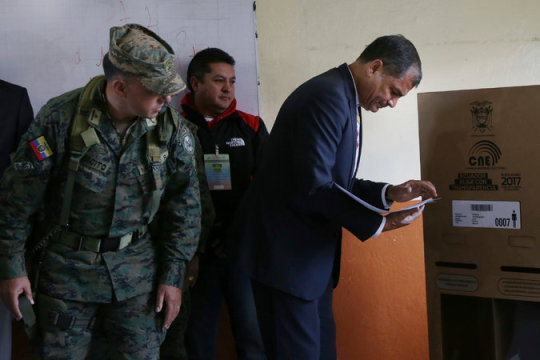
President Rafael Correa of Ecuador casting his ballots in Quito on Sunday.
Credit
Dolores Ochoa/Associated Press
As in Argentina, Venezuela and Brazil, the social programs in Ecuador that lifted millions out of poverty were underwritten by a commodities boom that sputtered out years ago. Government revenue, around $25 billion a year when oil prices spiked, has now shrunk to less than half that, $11 billion, mainly because of the declining price of oil.
That has left the country heavily indebted to China. Ecuador’s economy ground to a halt last year after growing, on average, 4 percent or more from 2006 to 2014.
“The model has reached its end because the money has run out,” said César Robalino, a conservative banker at the Pichincha College of Economists in Quito.
Mr. Robalino said Ecuador’s next president, regardless of political affiliation, would need to take a tougher line on spending, reduce the number of government workers and cut subsidies like the ones used to reduce gas prices for all Ecuadoreans.
That is the stance championed by the conservative opposition candidate Guillermo Lasso, a wealthy banker from Mr. Correa’s hometown, Guayaquil, who finished second in the last election against him in 2013. Mr. Lasso is promising to roll back public spending while eliminating more than a dozen taxes, which would mean the loss of billions of dollars from state coffers.
“What a government should do is facilitate entrepreneurship,” Mr. Lasso said in a TV interview during the campaign, adding that he thought Mr. Correa generated too much employment through public-sector jobs.
Lenin Moreno, the leading left-wing candidate, has promised to do more with less, borrowing when necessary. In a response to written questions, Mr. Moreno said that despite the collapse of oil prices, Mr. Correa had avoided cutting social programs and gas subsidies used by the poor. Mr. Moreno said he would continue that policy if the left won.
Photo
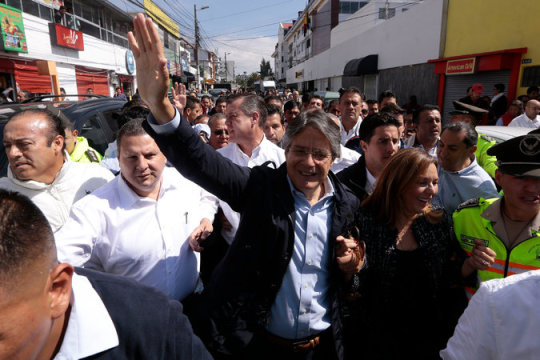
Guillermo Lasso, a conservative opposition candidate, greeting supporters in Quito on Sunday.
Credit
Juan Cevallos/Agence France-Presse — Getty Images
With about 80 percent of ballots counted on Sunday night, Mr. Moreno, 63, a former deputy of Mr. Correa, was leading with 38.8 percent, just more than a point short of the threshold needed to avoid a second round in April. Analysts said that if the numbers held, they would create an opening for Mr. Lasso, who was in second place, to unite his and the remaining opposition votes and potentially capture the presidency.
Continue reading the main story
If Mr. Moreno wins, he will face the challenge of setting himself apart from his predecessor and his legacy. Mr. Correa has said he will move to Belgium after his term ends, but some argue that if the left remains in power, Mr. Correa will try to influence politics from behind the scenes.
“‘I command, I direct,’ is how he thinks,” said Jorge León, a political scientist at the Central University of Ecuador.
Mr. León pointed to an authoritarian streak in Mr. Correa that also became a hallmark of leftists in several other South American countries. After changing the Constitution — a move that allowed him to be re-elected twice — the president proposed allowing himself to run for a fourth time. (He backtracked when it became clear that popular opinion was against him.)
Mr. Correa also tried to make life difficult for his critics during his time in office. He sued journalists, toughened defamation laws and even took over TV channels whose owners criticized him. More recently, he tried to close an environmental group that was stirring up opposition to a planned copper mine in the Amazon.
It will be up to Mr. Correa’s successor to decide whether to build on his legacy or reverse it. But those who have tried to forge a different path in the region have faced troubles.
President Mauricio Macri of Argentina, despite his vow to revive the country’s economy with market-oriented policies, has had trouble attracting investment to his country, noted Franklin Ramírez, a professor at the Latin American Social Sciences Institute in Quito. Brazil’s president, Michel Temer, has been dogged by corruption allegations similar to those that brought down leftists.
“It’s a little early to speak of the end of a cycle here” for the left, Mr. Ramírez said. “The hegemony of the left has ended,” he said, but added that it was not clear what would replace it.
Continue reading the main story
This post has been harvested from the source link, and News-Twitter has no responsibility on its content.
Source link
0 notes